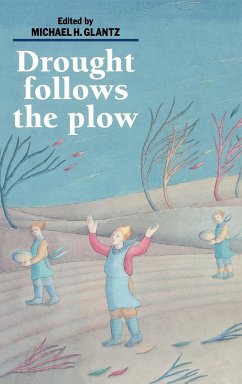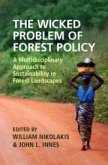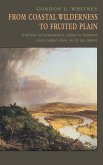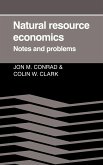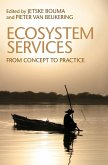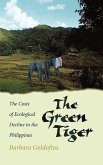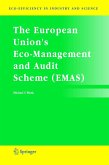- Gebundenes Buch
- Merkliste
- Auf die Merkliste
- Bewerten Bewerten
- Teilen
- Produkt teilen
- Produkterinnerung
- Produkterinnerung
This 1994 book will help scientists and researchers assess our impact on the planet and consider our ability to respond to future environmental change.
Andere Kunden interessierten sich auch für
![The Wicked Problem of Forest Policy The Wicked Problem of Forest Policy]() The Wicked Problem of Forest Policy99,99 €
The Wicked Problem of Forest Policy99,99 €![From Coastal Wilderness to Fruited Plain From Coastal Wilderness to Fruited Plain]() George G. WhitneyFrom Coastal Wilderness to Fruited Plain196,99 €
George G. WhitneyFrom Coastal Wilderness to Fruited Plain196,99 €![Natural Resource Economics Natural Resource Economics]() Jon M. ConradNatural Resource Economics142,99 €
Jon M. ConradNatural Resource Economics142,99 €![Ecosystem Services Ecosystem Services]() Ecosystem Services77,99 €
Ecosystem Services77,99 €![The Green Tiger The Green Tiger]() Barbara GoldoftasThe Green Tiger80,99 €
Barbara GoldoftasThe Green Tiger80,99 €![Woods & People: Putting Forests on the Map Woods & People: Putting Forests on the Map]() David FootWoods & People: Putting Forests on the Map30,99 €
David FootWoods & People: Putting Forests on the Map30,99 €![The European Union's Eco-Management and Audit Scheme (Emas) The European Union's Eco-Management and Audit Scheme (Emas)]() Michael S. WenkThe European Union's Eco-Management and Audit Scheme (Emas)121,99 €
Michael S. WenkThe European Union's Eco-Management and Audit Scheme (Emas)121,99 €-
-
-
This 1994 book will help scientists and researchers assess our impact on the planet and consider our ability to respond to future environmental change.
Hinweis: Dieser Artikel kann nur an eine deutsche Lieferadresse ausgeliefert werden.
Hinweis: Dieser Artikel kann nur an eine deutsche Lieferadresse ausgeliefert werden.
Produktdetails
- Produktdetails
- Verlag: Cambridge University Press
- Seitenzahl: 216
- Erscheinungstermin: 24. April 2007
- Englisch
- Abmessung: 235mm x 157mm x 17mm
- Gewicht: 508g
- ISBN-13: 9780521442527
- ISBN-10: 0521442524
- Artikelnr.: 22896392
- Herstellerkennzeichnung
- Libri GmbH
- Europaallee 1
- 36244 Bad Hersfeld
- gpsr@libri.de
- Verlag: Cambridge University Press
- Seitenzahl: 216
- Erscheinungstermin: 24. April 2007
- Englisch
- Abmessung: 235mm x 157mm x 17mm
- Gewicht: 508g
- ISBN-13: 9780521442527
- ISBN-10: 0521442524
- Artikelnr.: 22896392
- Herstellerkennzeichnung
- Libri GmbH
- Europaallee 1
- 36244 Bad Hersfeld
- gpsr@libri.de
Michael H. Glantz was a Senior Scientist at the National Center for Atmospheric Research (NCAR), where he researched from 1974 to 2009. Since then, he has been the director of the University of Colorado's Consortium for Capacity Building (CCB). His research publications relate to understanding how extreme climate, water and weather affect societies and how societies affect climate. Since 1976, Glantz has conducted joint research in the former Soviet Union and in the Central Asian Republics on desertification and on the disappearing of the Aral Sea. In 2013 he was recognized by China as a pioneer in desertification studies. Glantz is a member of the Advisory Committee of the international Integrated Risk Governance Program, headquartered at Beijing Normal University. He has lectured on the Climate Affairs concept in several Chinese cities at universities and meteorological centers. He has numerous publications on climate, water and weather issues. Glantz and Professor Qian (BNU and executive director of the IRG) co-authored Usable Thoughts: Climate, Water and Weather in the 21st Century. His current multiyear research is "El Niño Ready Nations," supported by USAID/OFDA. Many Belt and Road countries are affected by El Niño's impacts. In 1990 he received the Global 500 Award of the UN Environment Program (UNEP) that recognizes people working in diverse ways to protect and enhance the planet's natural resources. Glantz received the 2009 Clinton Global Initiative and Rockefeller Foundation Commitment. He has a BS in Metallurgical Engineering (1961) and an MA (1963) and PhD (1970) in Political Science/ International Relations from the University of Pennsylvania.
Preface
List of contributors
Introduction Michael H. Glantz
Part I. Drought, Desertification and Food Production: 1. Drought Michael H. Glantz
2. Desertification Michael H. Glantz
3. Food production: role of marginal lands Michael H. Glantz
4. Cultivating the dry margins Michael H. Glantz
Part II. Case Studies and Conclusions: 5. The West African Sahel Michael H. Glantz
6. Somalia Jörg Janzen
7. The Brazilian Nordeste (Northeast) Antonio Magalhães and Pennie Magee
8. The dry regions of Kenya David Campbell
9. Australia R. Les Heathcote
10. Ethiopia James McCann
11. Northwest Africa Will Swearingen
12. The Virgin Lands scheme in the former Soviet Union Igor Zonn, Michael H. Glantz and Alvin Rubinstein
13. South Africa Coleen Vogel
14. Is the stork outrunning the plow? Michael H. Glantz
Notes
Index.
List of contributors
Introduction Michael H. Glantz
Part I. Drought, Desertification and Food Production: 1. Drought Michael H. Glantz
2. Desertification Michael H. Glantz
3. Food production: role of marginal lands Michael H. Glantz
4. Cultivating the dry margins Michael H. Glantz
Part II. Case Studies and Conclusions: 5. The West African Sahel Michael H. Glantz
6. Somalia Jörg Janzen
7. The Brazilian Nordeste (Northeast) Antonio Magalhães and Pennie Magee
8. The dry regions of Kenya David Campbell
9. Australia R. Les Heathcote
10. Ethiopia James McCann
11. Northwest Africa Will Swearingen
12. The Virgin Lands scheme in the former Soviet Union Igor Zonn, Michael H. Glantz and Alvin Rubinstein
13. South Africa Coleen Vogel
14. Is the stork outrunning the plow? Michael H. Glantz
Notes
Index.
Preface
List of contributors
Introduction Michael H. Glantz
Part I. Drought, Desertification and Food Production: 1. Drought Michael H. Glantz
2. Desertification Michael H. Glantz
3. Food production: role of marginal lands Michael H. Glantz
4. Cultivating the dry margins Michael H. Glantz
Part II. Case Studies and Conclusions: 5. The West African Sahel Michael H. Glantz
6. Somalia Jörg Janzen
7. The Brazilian Nordeste (Northeast) Antonio Magalhães and Pennie Magee
8. The dry regions of Kenya David Campbell
9. Australia R. Les Heathcote
10. Ethiopia James McCann
11. Northwest Africa Will Swearingen
12. The Virgin Lands scheme in the former Soviet Union Igor Zonn, Michael H. Glantz and Alvin Rubinstein
13. South Africa Coleen Vogel
14. Is the stork outrunning the plow? Michael H. Glantz
Notes
Index.
List of contributors
Introduction Michael H. Glantz
Part I. Drought, Desertification and Food Production: 1. Drought Michael H. Glantz
2. Desertification Michael H. Glantz
3. Food production: role of marginal lands Michael H. Glantz
4. Cultivating the dry margins Michael H. Glantz
Part II. Case Studies and Conclusions: 5. The West African Sahel Michael H. Glantz
6. Somalia Jörg Janzen
7. The Brazilian Nordeste (Northeast) Antonio Magalhães and Pennie Magee
8. The dry regions of Kenya David Campbell
9. Australia R. Les Heathcote
10. Ethiopia James McCann
11. Northwest Africa Will Swearingen
12. The Virgin Lands scheme in the former Soviet Union Igor Zonn, Michael H. Glantz and Alvin Rubinstein
13. South Africa Coleen Vogel
14. Is the stork outrunning the plow? Michael H. Glantz
Notes
Index.

